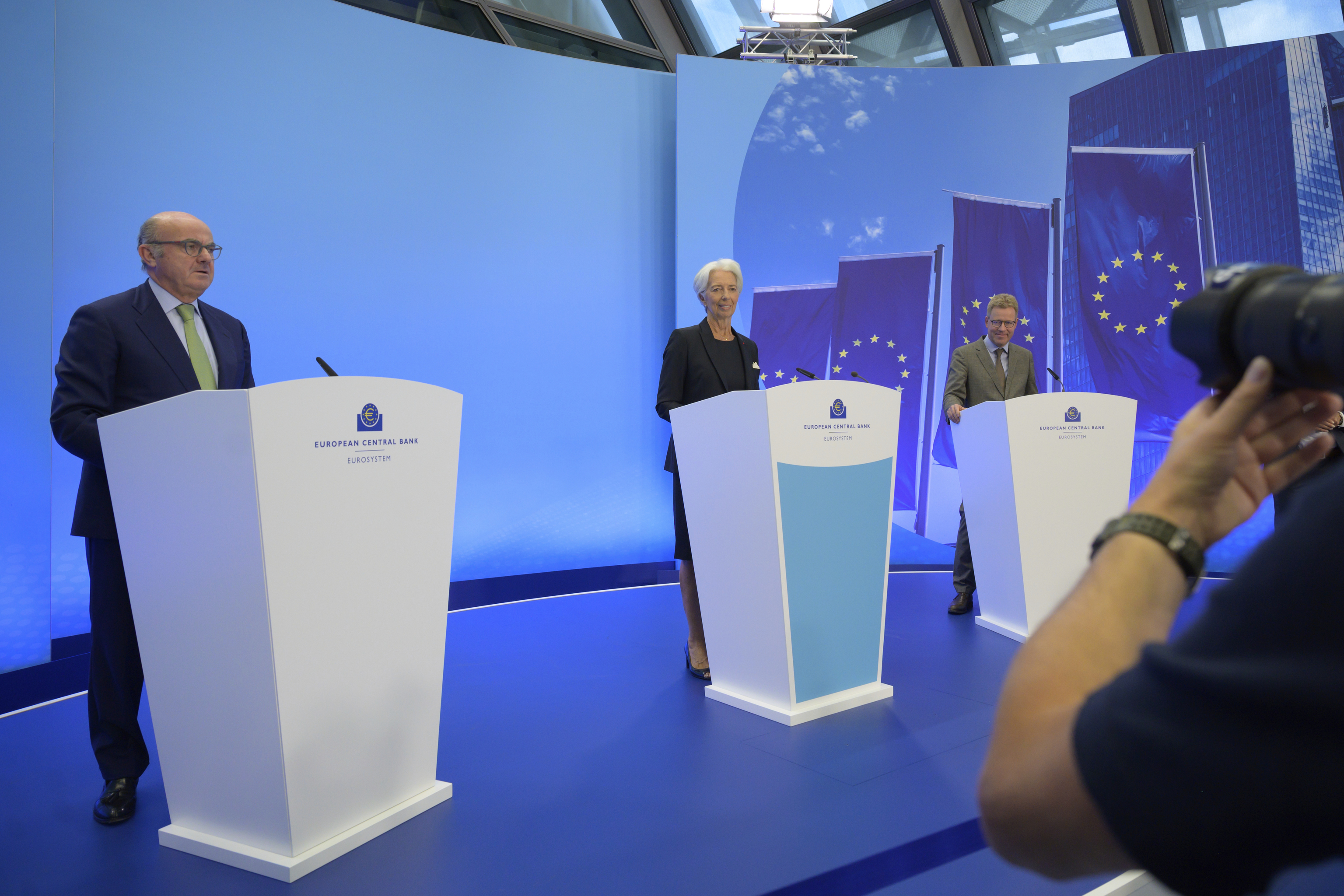Crisis The ECB raises rates to 0.50% to try to contain inflation
Taxation The Government fears that it will not be able to prevent banks from passing on the new tax to customers
The Spanish banking sector took another step yesterday in its rejection of the new tax announced by the Government.
Until now he had focused on criticizing how pernicious it will be, both for entities and for the economy as a whole.
But this Thursday, the CEO of Bankinter, María Dolores Dancausa, announced that the entity
is fully willing to denounce the new tax
and confront the Government in court.
In the event that there is a "loophole" to not assume the tax and provided that "the right assists them", he stated during the presentation of the entity's results, they will go to court: "
We will fight it
."
"Of course the imposition of this extraordinary tax seems absolutely unfair to us, so we are going to assess all the possibilities before being able to assume it," he insisted, according to Europa Press.
In this way, the bank adds to what has already been advanced from the electrical field and published by EL MUNDO: «
If there is a loophole, there will be a fight
», sources from the electricity sector pointed out when not even the new tax had yet been shaped .
That already made the Treasury decide to delay the new figure until 2023 and thus limit the complaints.
But even so, the electricity companies continue to point to that route once the final composition of the tax with which the Executive wants to collect 4,000 million is known.
Returning to the tax on banking, and with which the Government affirms that it will enter another 3,000 million in two years, the
European Central Bank (ECB) sent a clear message yesterday
: it must not affect credits, it must not tighten the conditions of financing of companies and households and should not penalize the solvency of banks.
This was also stated yesterday by the agency's vice president, Luis de Guindos, during the press conference in which the first rise in interest rates in 11 years was announced.
Asked by this newspaper about this tax, President Christine Lagarde delegated the answer to De Guindos, who is more familiar with the situation.
The Spaniard, however, limited himself to pointing out that “it is very difficult to give an opinion without knowing the specific terms.
We don't know the features, whether it will be about the benefits or the assets...
we don't know the details so the opinion can't be complete
», he pointed out.
Luis de Guindos and Christine Lagarde, during the press conference they offered yesterday.EM
The same message is heard these days in Brussels.
There is,
per se
, nothing against it, neither in the rules nor in the political will.
There is always some skepticism when the capitals announce extraordinary income plans to put their accounts in order, since the Commission is much more in favor of tangible adjustments than collection projects, which rarely meet expectations.
But just as there was no impediment to extraordinary profits for the electricity companies, there are none for the banks.
What no one is clear about is that it is the right solution.
Or, more specifically in Frankfurt, that it has
nothing to do with the rise in interest rates
, as the Executive sometimes argues.
“What I can say is that our policy on bank taxes is very clear:
it should not affect credit, it should avoid tightening financing conditions for companies and households
.
And finally, it should not affect the solvency of bank instruments.
Those have been our opinions in the past, but without knowing the characteristics of the announced tax.
We need more data to have an opinion and we will have to wait, ”settled the former Minister of Economy.
It is the duty of the ECB to make an analysis when a government adopts this type of measure.
It did it in the past with specific taxes from Lithuania, Slovenia or Cyprus, and also from countries that are outside the euro, such as Poland or Hungary.
The thesis in the city of Main is that these figures should not be used for budget purposes, but that the potential income should be focused on correcting system failures and protecting customers.
The tax, in order to collect, can damage growth
, the transmission of credit and increase costs for customers.
And it can lead entities to change the profile of their products to avoid rates, to seek more risk or distortions with negative consequences.
Conforms to The Trust Project criteria
Know more

